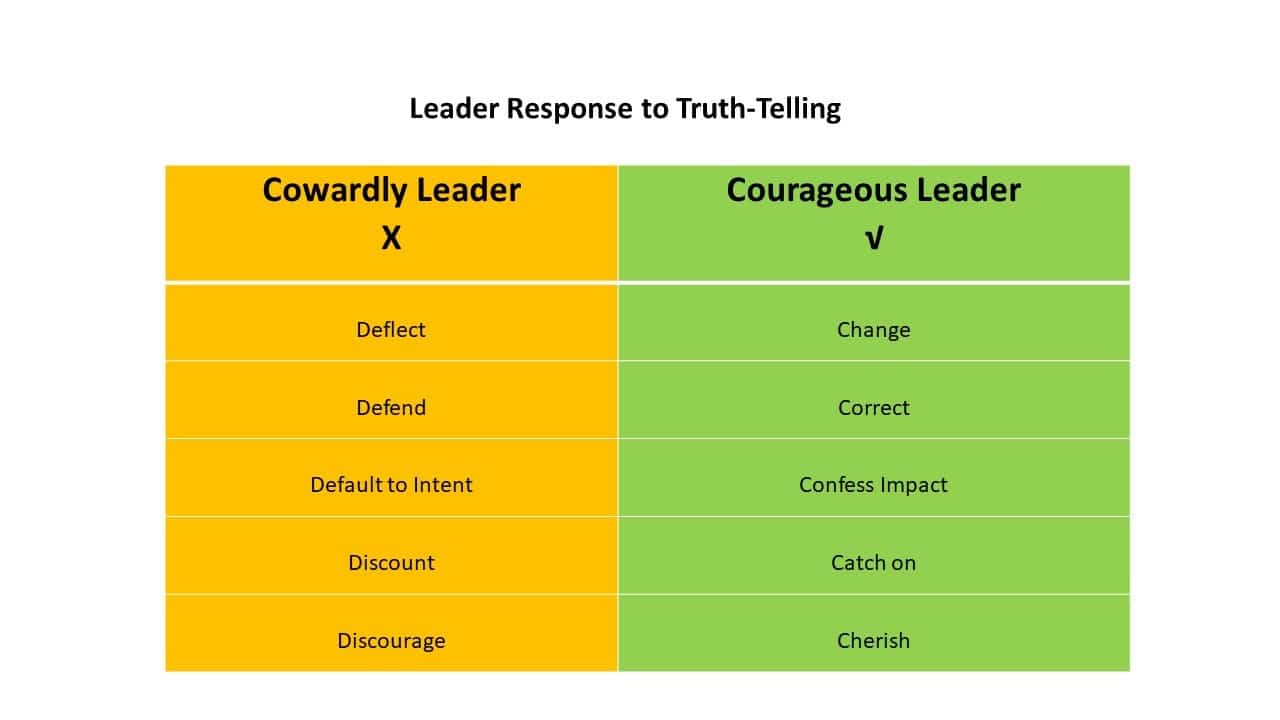Lessons on Leadership from the Cowardly Lion

Do you remember the Cowardly Lion from the Wizard of Oz? I love the way he strokes his tail to settle his nerves. How tremors overtook him as he cowered behind Dorothy for protection. But most importantly, do you remember watching him turn into the Courageous Lion?
Like the lion in the story, every day as leaders, we are faced with the choice to show up as either the Courageous Leader or the Cowardly one.
Recently, a dear colleague who I had hurt deeply by speaking careless words called me out in public. At first the Cowardly Leader in me felt embarrassed by the public accountability. Thankfully, the Courageous Leader in me quickly took over. The first opportunity I had, I apologized to her in front of a group of other senior leaders. I also asked if she was willing to have a mediated conversation with me so I could better understand the impact of my words and take responsibility for them. I realized that as a leader, my intent was less important as the impact I had had on her. My careless words were magnified by my position in the organization. Oprah Winfrey says, “I learned a long time ago that from me, every whisper becomes a shout.” I’m still learning this. I’m happy to say that today, the relationship between me and my colleague has been restored and is stronger than ever. None of it would have happened, though, if she hadn’t had the courage to tell me the truth.
Often as leaders, the higher you rank on an organizational chart, the less feedback you receive. And to make matters worse, the higher your position, the less honest feedback you tend to hear. Robert S. Kaplan from Harvard Business School describes it in this way, “As executives become more senior, they are less likely to receive constructive performance and strategic feedback.” The fact that the leaders with the most authority to lead the vision and direction of an organization get less honest feedback can be dangerous. So, as leaders, we need to encourage and reward truth-telling if we want to arrive at the best solutions.
One way we reward truth-telling is by making a choice to respond as the Courageous Leader.
Cowardly leaders respond to truth-telling by deflecting, defending, defaulting to their intent, discounting the feedback or by merely discouraging it.
Courageous leaders respond to truth-telling by changing, correcting the problem, confessing their impact, catching on and cherishing it.

Robert Cialdini, in his book ‘Influence’ explains that people require social pressure to act courageously. He tells a story about Kitty Genovese who was stabbed to death in a neighborhood in New York City in 1964 while 38 neighbors watched from inside their houses. Everyone was waiting for someone else to act courageously and intervene. No one did.
As leaders, we need to model receiving tough feedback with courage. We need to ask for feedback repeatedly, respond well when we get it and thank people who give it to us–this encourages them to do it again. And it shows others that it’s ok. By doing these things we increase the social pressure to act courageously so that truth-telling is welcomed. Anytime a person states a truth that others overlook, downplay or ignore, they are taking a risk. The risk increases exponentially when the person receiving the feedback has power over the truth-teller.
Being told the truth is part of being a leader. We must push through our cowardice to courage and respond with change.
On any given day, we all can find ourselves responding as both the Cowardly Leader and the Courageous one.
Wouldn’t it be great if we could rid ourselves of our own daily tremors and show up as the Courageous Leader every time?

Author: Denise Padín Collazo
Denise Padín Collazo is a social justice leader, a mentor to women of color, and a family work integrator. She is the author of Thriving in the Fight: A Survival Manual for Latinas on the Front Lines of Change (Berrett-Koehler, 2021.) Her work has been featured in the Miami Herald, Telemundo, Chronicle of Philanthropy and Nonprofit Quarterly. Twitter @DeniseThriving


